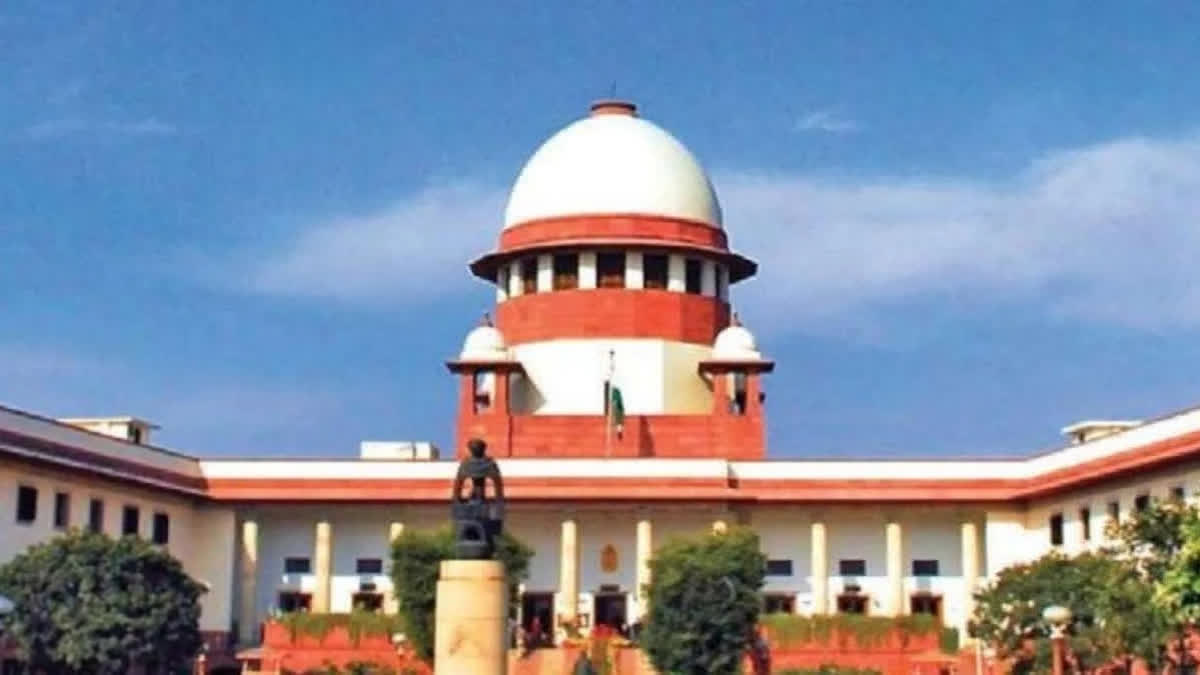New Delhi: The Supreme Court has modified the sentence of a Karnataka-based man and his wife, who were accused of subjecting their daughter-in-law to cruelty and harassment, which drove her to die by suicide by setting herself ablaze, by convicting them of abetment of suicide, a charge which was not framed on them by the trial court. The apex court said the dying declaration of the deceased would clearly indicate that the deceased was mentally traumatised and was unable to tolerate the torture and harassment meted out by the accused due to which she died by suicide
A bench comprising justices S Ravindra Bhat and Aravind Kumar said, “Omission to frame charge does not disable the court from convicting the accused for the offence which is found to have been proved on the evidence on record”. The bench said the code has ample provisions to meet a situation like the one before the court: The in-laws of the deceased were convicted by the trial court in 2012 for the offences punishable under Section 498A, 304B read with Section 34 of IPC and Section 3 and 4 of Dowry Prohibition Act, and the High Court affirmed the trial court's decision.
“From the statement of charge framed under Section 304B and in the alternative Section 306, it is clear that all the facts and ingredients for framing the charge for the offence under Section 306 existed," said Justice Kumar, who authored the judgment on behalf of the bench.
The bench said the accused being the husband, father-in-law & mother-in-law are said to have harassed the deceased and subjected her to cruelty and the deceased has in clear terms stated in her dying declaration that she could not tolerate the same. It said that the torture, which has taken place within the four walls is supported by the statement of the victim and stands proved by virtue of the dying declaration having been accepted by the apex court. It is this act of torture, which led the deceased to die by suicide and these acts have forced the deceased to die by suicide, said Justice Kumar, in a judgment delivered on October 19.
The bench said mere omission on the part of the trial judge to mention Section 306 IPC with 498A would not preclude this court from convicting the accused for the said offence when found proven. “It is this taunting or mental torture, which she could not withstand and forced her to died by suicide by self-immolation. In that view of the matter, we are of the considered opinion that accused persons are liable to be convicted for the offence punishable under Section 306 IPC though the charge was not framed.”
In the context of the dying declaration, the bench noted that when said declaration is perused it would not suggest that there was any proximate nexus to the act of committing suicide on account of the preceding demand for dowry or in other words the demand of dowry on any particular date having triggered the deceased to commit the suicide or forced her to self-immolate. “This proximate link not being available in the facts obtained in the present case, we are of the considered view that conviction of the accused under Section 304B cannot be sustained”, it said.
The victim’s in-laws have moved the apex court against the High Court order. The apex court modified the trial court order passed in September 2012, which was affirmed in criminal appeal by judgment passed by the Karnataka High Court in July 2022. The apex court noted that the accused (in-laws) are now aged about 66 and 61 years respectively and they have already spent one year, one month and 27 days in prison. “They do not have any past history of criminal record. Hence, a lenient view has to be taken while imposing the sentence”, said the bench.
The apex court acquitted the accused for the offences punishable under Section 304B IPC and Sections 3 and 4 of the Dowry Prohibition Act and convicted for the offence punishable under Section 306 and Section 498A read with Section 34 IPC and sentenced to imprisonment for the period already undergone. The deceased got married on May 16, 2010. Her dying declaration was recorded on December 12, 2010, and she succumbed to burn injuries on December 24, 2010. An FIR was registered for the offences punishable under Section 323, 498A read with Section 34 of IPC and 504 of IPC and Sections 3 and 4 of the DP Act and on her death on December 24, 2010, and Section 304B of IPC was added.



